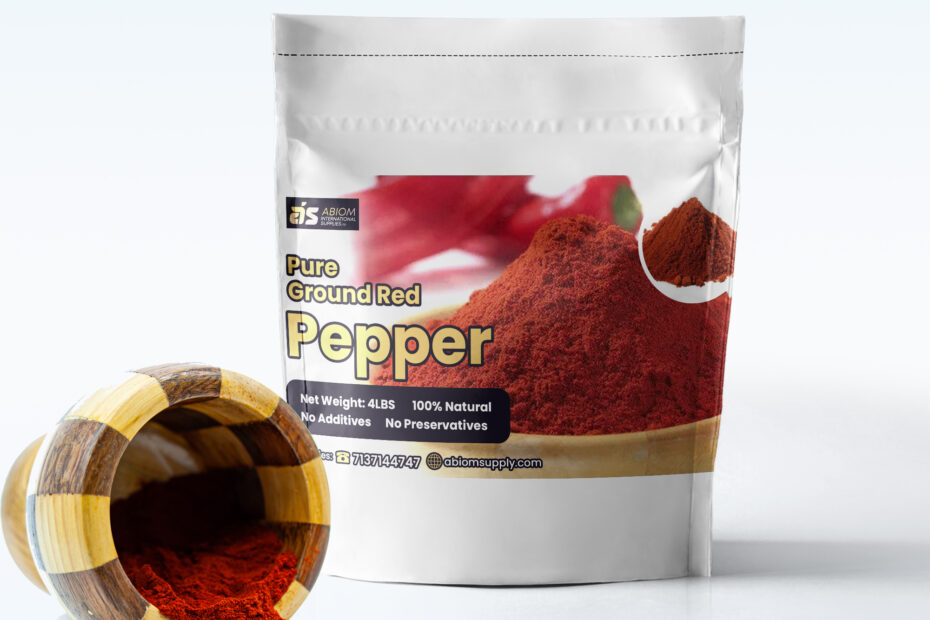Is it Just me?
Or is everywhere getting hotter all of a sudden…
Today, we talk about the Red Hot sensation in the room. It’s the Famous African Red Pepper …
Also known as cayenne pepper or chili pepper, the Red pepper is a popular spice used in cuisines all around the world. It adds a fiery kick to dishes and is known for its distinct flavor and aroma.
It is widely used in West and Central Africa with a special reputation for packing quite a punch when added to traditional stews, soups like ugu, sauces, and other delicacies. You can visit abiom supplies to order your premium African pepper and add some African spice to your meals.
But did you know that red pepper also offers numerous health benefits? It has been constantly used over the years in traditional medicine as well.
In this article, we’ll explore the potential health benefits and dangers of red pepper, so you can decide whether to spice up your meals with this hot little ingredient.
Health Benefits of Red Pepper
1. Anti-Inflammatory Properties
Red pepper contains capsaicin, a compound that has been shown to have anti-inflammatory properties.
Capsaicin works by inhibiting the activity of substance P, a neurotransmitter that is involved in the perception of pain and inflammation. This may make red pepper a potential natural remedy for inflammatory conditions such as arthritis.
2. Boosts Metabolism
Red pepper has been shown to increase metabolism and promote weight loss.
Capsaicin stimulates the sympathetic nervous system, which leads to an increase in energy expenditure and fat oxidation.
A study in the Journal of Nutritional Science and Vitaminology found that participants who consumed red pepper with their meals had higher energy expenditure and fat oxidation compared to those who didn’t.
3. Improves Heart Health
Red pepper may also have a positive effect on heart health.
Capsaicin has been shown to improve blood flow by dilating blood vessels, which may help reduce the risk of heart disease.
A study published in the American Journal of Clinical Nutrition found that consuming red pepper with meals improved blood pressure and reduced the risk of coronary heart disease.
4. May Boost Immunity
Red pepper contains high levels of vitamin C, which is an essential nutrient for immune function.
Vitamin C acts as an antioxidant, protecting cells from damage caused by free radicals.
It also helps the body produce white blood cells, which are crucial for fighting off infections.
Dangers of Red Pepper
While red pepper has numerous health benefits, it’s important to note that consuming too much can also have some potential dangers.
1. Digestive Issues
Red pepper can cause digestive issues in some people, especially if consumed in large quantities. It may irritate the lining of the stomach and cause symptoms such as nausea, vomiting, and diarrhea.
2. Allergic Reactions
Some people may be allergic to red pepper, which can cause symptoms such as hives, itching, and difficulty breathing.
If you experience any of these symptoms after consuming red pepper, it’s important to seek medical attention immediately.
3. Interaction with Medications
Red pepper may interact with certain medications, including blood thinners and high blood pressure medications.
If you’re taking any medications, it’s important to talk to your doctor before consuming red pepper to avoid any potential interactions.
Final Thoughts
Red pepper can be a delicious and healthy addition to your meals. Its anti-inflammatory properties, metabolism-boosting effects, and potential to improve heart health and boost immunity make it an ingredient worth incorporating into your diet.
However, as with any food or spice, it’s important to consume red pepper in moderation and be aware of any potential dangers or interactions with medications.
As the saying goes, “Everything in moderation, including moderation.” You can always visit abiom supplies for more inquiries.
